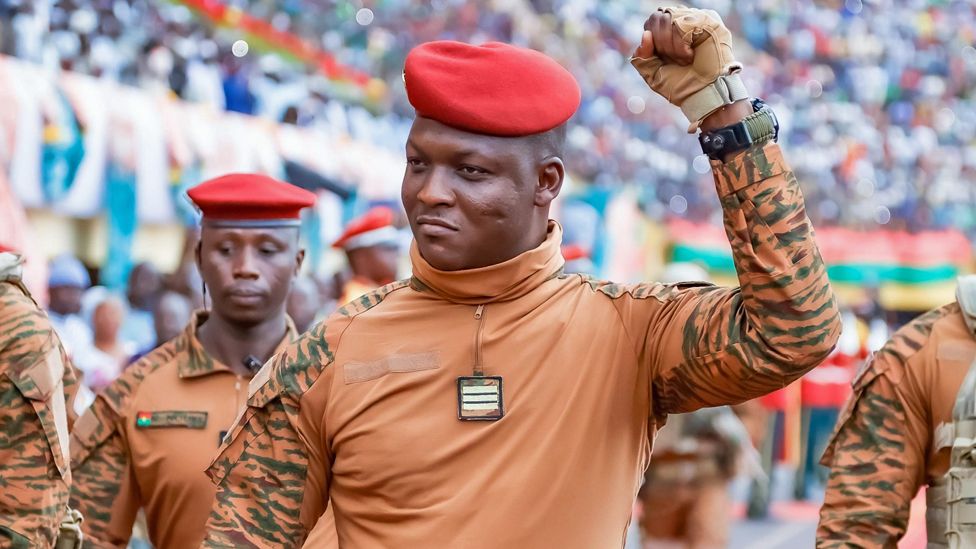The Rise of Capt Ibrahim Traoré: A Pan-African Symbol
In the heart of Burkina Faso, a charismatic military leader is garnering attention far beyond his nation’s borders. Captain Ibrahim Traoré, at just 37 years old, has successfully crafted an image as a pan-Africanist hero committed to liberating his country from what he perceives as Western imperialism and neo-colonialism. His narrative echoes across the continent, with supporters likening him to renowned African icons such as Thomas Sankara, a celebrated revolutionary known as “Africa’s Che Guevara.”
This captivating image has struck a chord within Africa and beyond. Beverly Ochieng, a senior researcher at Control Risks, remarked, “Traoré’s impact is immense. Even political figures in regions like East Africa, particularly Kenya, are acknowledging him as a transformative leader.” Ochieng emphasized that his bold stances resonate with many Africans currently reassessing their ties to the West and contemplating persistent poverty on a resource-abundant continent.
A Shift in Alliances
Since assuming power through a coup in 2022, Traoré’s administration has severed ties with France, the former colonial power, opting instead to establish a strong alliance with Russia. This partnership includes the deployment of a Russian paramilitary brigade and the adoption of left-leaning economic models, such as the formation of a state-owned mining company. In a bid to benefit from its mineral resources, the regime now demands foreign companies to allocate a 15% stake in their operations to Burkinabé citizens.
| Company | Action by Traoré’s Junta |
|---|---|
| Nordgold | Granted a license in late April 2025 for investment in gold |
| Sarama Resources | Initiated arbitration proceedings in late 2024 after license withdrawal |
| London-listed Mining Company | Two gold mines nationalized |
As part of Traoré’s vision dubbed a “revolution,” the regime is establishing a gold refinery to harness the nation’s mineral wealth historically. However, foreign firms have reported mounting challenges, including legal disputes initiated by Sarama Resources over the revocation of its exploration license.
Radical Popularity
Traoré’s radical reforms have not gone unnoticed, bolstering his status as potentially Africa’s most favored leader, according to Enoch Randy Aikins from the Institute for Security Studies. “He is taking a different path than his predecessors, especially in West Africa,” Aikins stated.
The decline in support for Western-style democracy in Africa has been evident, with a notable shift in sentiments among the youth. A 2024 survey by Afrobarometer revealed diminished faith in democratic systems, with many feeling disappointed over unfulfilled promises of economic and social improvement.
Securing His Legacy
While Traoré enjoys popularity thanks to his connections and media-savvy demeanor, he faces criticism for being unable to mitigate a decade-long Islamist insurgency that has fostered ethnic unrest. Moreover, human rights activist groups point out a concerning trend of silencing dissent, targeting opposition and civil society voices within Burkina Faso.
As the junta leader explores avenues for lasting change, experts suggest that focusing on institutional stability and good governance rather than personal power may be critical for achieving a sustainable legacy. With a young and hopeful population, Traoré’s path, reminiscent of past African leaders, has captured imaginations, but the road ahead is fraught with complexities.
Although the future is unpredictable for Captain Traoré, his dynamic presence, alongside military counterparts in Mali and Niger, signifies a broader shift in West Africa’s political landscape, advocating for sovereignty and independence from previous colonial powers.


